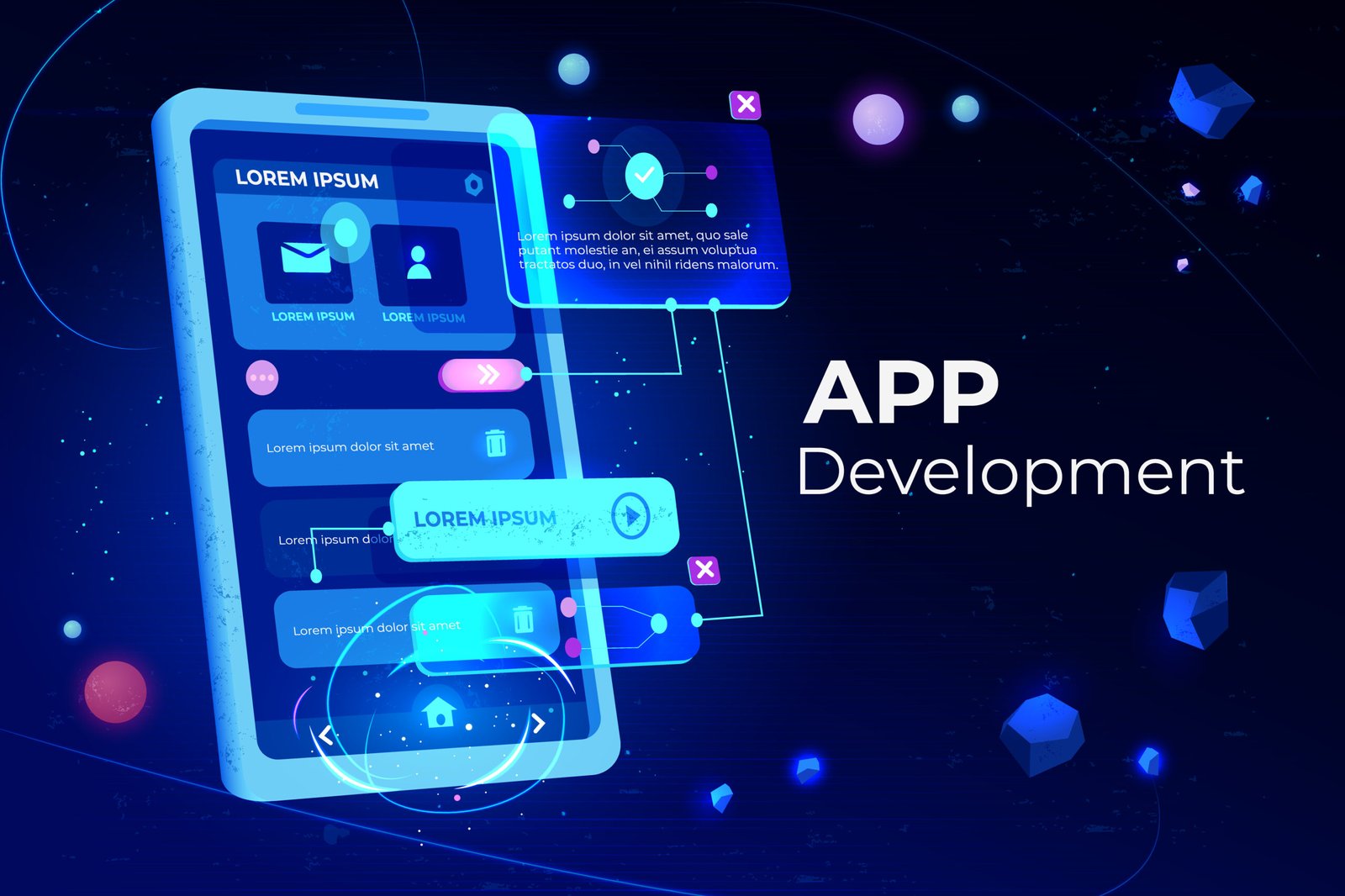Outline of the Article:
I. Introduction to Mobile App Development
- Definition and significance
II. The Ascendancy of Mobile Usage
- Statistics on mobile usage
- Mobile vs. Desktop usage
III. Importance of Mobile App Development
- A. Enhanced User Experience
- B. Increased Visibility
- C. Direct Marketing Channel
- D. Competitive Advantage
IV. Benefits of Mobile App Development
- A. Improved Customer Engagement
- B. Increased Sales and Revenue
- C. Personalized User Experience
- D. Access to Customer Data and Insights
- E. Brand Recognition and Loyalty
V. The Role of Mobile Apps in Different Sectors
- A. Retail
- B. Education
- C. Healthcare
- D. Finance
VI. Future Trends in Mobile App Development
- AI integration
- AR and VR
- IoT apps
- 5G technology
VII. Challenges in Mobile App Development
- User Privacy and Security
- Cross-platform Compatibility
VIII. How to Get Started with Mobile App Development
- Identifying the purpose
- Choosing the right platform
- Finding the right development partner
IX. Conclusion
X. FAQs
What Is the Importance & Benefits of Mobile App Development?
I. Introduction to Mobile App Development
In today’s digitally-driven world, mobile apps have become an integral part of our daily routines, transforming the way we communicate, shop, and manage our lives. With millions of apps available at our fingertips, the significance of mobile app development cannot be overstated. But what makes mobile apps so crucial, and how do businesses and users benefit from them?
II. The Ascendancy of Mobile Usage
The last decade has witnessed an unprecedented surge in mobile device usage, with statistics showing a steady increase in mobile versus desktop internet users. This shift underscores the growing importance of mobile apps in reaching and engaging audiences effectively.
III. Importance of Mobile App Development
A. Enhanced User Experience
Mobile apps offer a streamlined, convenient user experience, tailored to personal preferences and usage patterns.
B. Increased Visibility
Having a mobile app increases a brand’s visibility, as it occupies a space on the user’s device, constantly reminding them of the brand’s presence.
C. Direct Marketing Channel
Mobile apps serve as a direct marketing channel, allowing businesses to push notifications and offers directly to the user’s screen.
D. Competitive Advantage
In a crowded market, a well-designed mobile app can give businesses a competitive edge by offering unique features and a superior user experience.
IV. Benefits of Mobile App Development
A. Improved Customer Engagement
Mobile apps foster a higher level of customer engagement by enabling interactions at the user’s convenience, leading to increased loyalty and retention.
B. Increased Sales and Revenue
By simplifying the buying process and offering personalized deals, mobile apps can significantly boost sales and revenue.
C. Personalized User Experience
Apps allow for personalized experiences based on user data, enhancing satisfaction and engagement.
D. Access to Customer Data and Insights
Mobile apps provide valuable insights into user behavior and preferences, enabling businesses to make data-driven decisions.
E. Brand Recognition and Loyalty
Mobile apps help build brand recognition and loyalty by providing constant visibility and personalized user experiences.
V. The Role of Mobile Apps in Different Sectors
A. Retail
In retail, mobile apps have revolutionized shopping by offering convenient in-app purchases, loyalty rewards, and personalized recommendations.
B. Education
Mobile apps in education provide interactive learning experiences, access to resources, and personalized learning paths.
C. Healthcare
Healthcare apps offer telemedicine services, patient record management, and personalized health tips, improving patient care and accessibility.
D. Finance
Finance apps have simplified banking, allowing users to manage their finances, make payments, and invest from their mobile devices.
VI. Future Trends in Mobile App Development
Innovations such as AI integration, augmented and virtual reality (AR/VR), the Internet of Things (IoT), and 5G technology are shaping the future of mobile app development, promising even more immersive and efficient user experiences.
VII. Challenges in Mobile App Development
Despite the benefits, mobile app development comes with its set of challenges, such as ensuring user privacy and security and achieving cross-platform compatibility.
VIII. How to Get Started with Mobile App Development
Developing a mobile app requires clear understanding of its purpose, choosing the right platform, and collaborating with a competent development partner to bring your vision to life.
IX. Conclusion
The importance and benefits of mobile app development are undeniable in this digital age. By offering enhanced user experiences, increased visibility, and numerous business benefits, mobile apps have become indispensable tools in various sectors. As technology advances, mobile apps will continue to evolve, offering even greater possibilities and opportunities.
X. FAQs
1. Why are mobile apps preferred over websites?
Mobile apps offer a more personalized and convenient user experience, with faster loading times and the ability to access features offline.
2. How do mobile apps improve customer engagement?
By providing personalized content, push notifications, and easy access to customer support, mobile apps foster a more interactive and engaging relationship with users.
3. Can small businesses benefit from mobile apps?
Absolutely, mobile apps provide small businesses with a powerful tool to increase visibility, engage with customers, and boost sales, leveling the playing field with larger competitors.
4. How do mobile apps offer personalized experiences?
Mobile apps can track user interactions and preferences to offer customized content, recommendations, and experiences.
5. What are the essential features of a successful mobile app?
A successful mobile app should offer a user-friendly interface, fast loading times, personalized features, and robust security to ensure a positive user experience.






